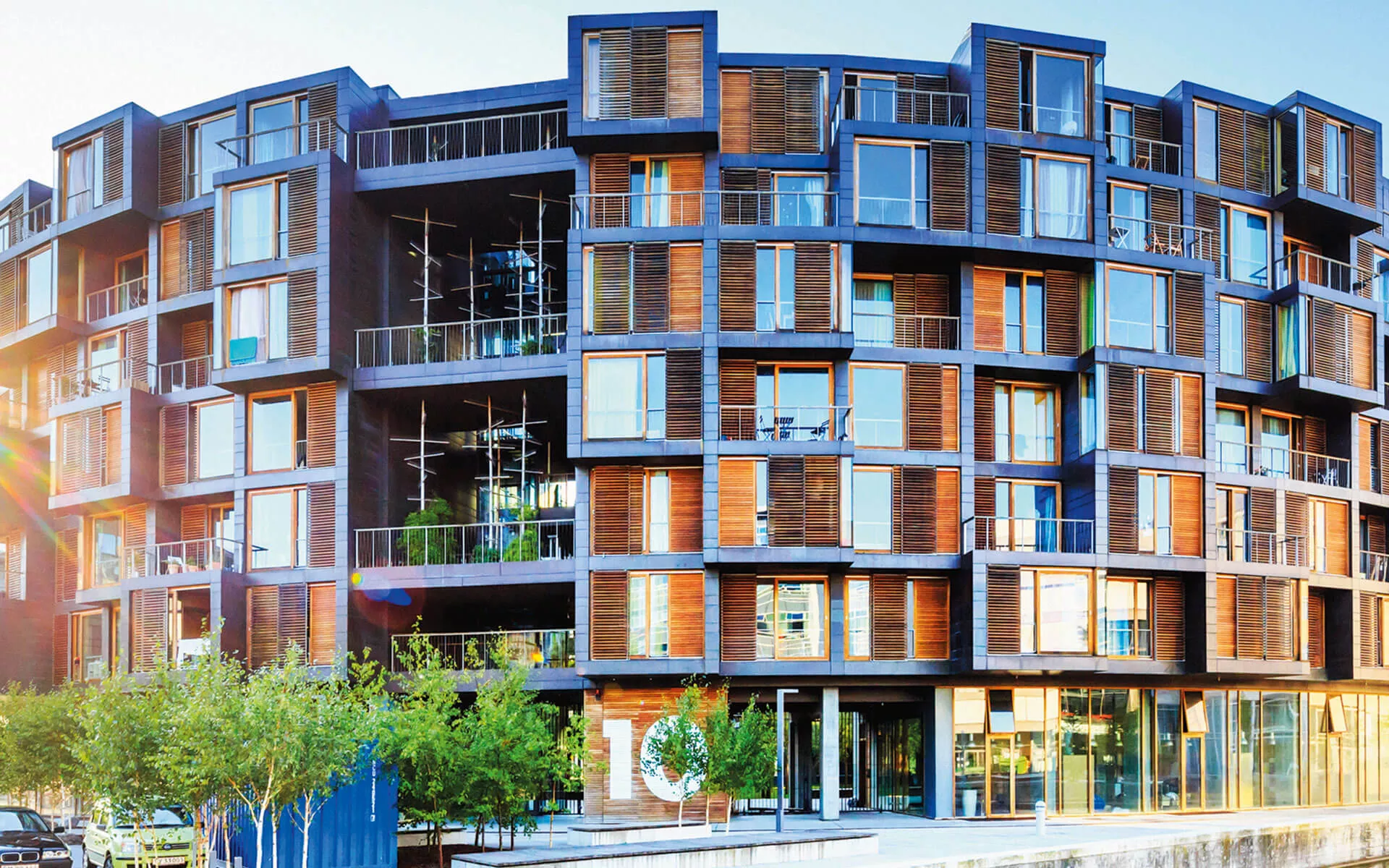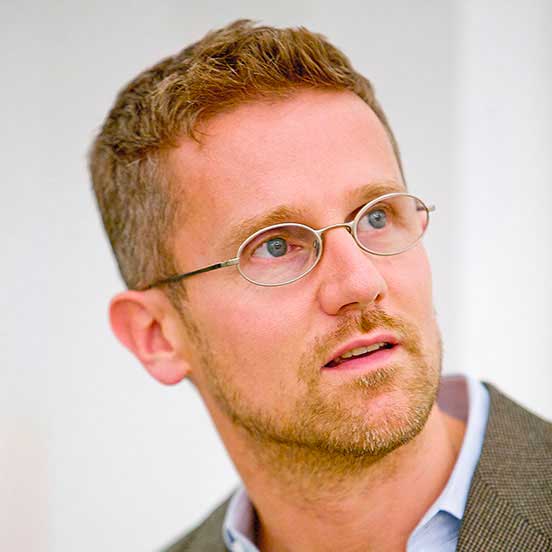
Quand la ville devient smart
Antoine Picon
is Research Director at the École Nationale des Ponts et Chaussées science, engineering and technology graduate school, and Professor at Harvard Graduate School of Design. He is particularly interested in digital-driven changes in architecture and urban environments. He is also the author of Smart Cities: A Spatialised Intelligence (Wiley, 2015).

Carlo Ratti
is an architect and engineer. He is professor at MIT (Massachussets Institute of Technology), where he directs the Senseable City Lab. He is founding partner of design and innovation practice CRA, and co-author with Matthew Claudel of The City of Tomorrow (Yale University Press, 2016).
How do you define the smart city?
Carlo Ratti: Let me begin by saying that I’m not a great fan of the term “smart cities”! I prefer the expression « senseable city”, which can be interpreted both as a city ‘capable of perception’ and ‘capable of being perceived’. I see the term ‘senseable’ as emphasising the human side of things rather than the technological one. That said, the concept of the smart or senseable city is nothing other than the manifestation of a large-scale technological trend: by permeating the spaces we live in, the Internet is mutating into the Internet of Things. This is an ongoing process with many applications, from energy to waste management, mobility to water supply, and urban development to citizen engagement.
“ The development of collaborative working programmes requires us to think about other deliberative processes. A smart city cannot govern itself in the same way as a traditional city.”
Antoine Picon: At its most basic, the smart city is a city made more efficient through the massive use of information and communication technologies (ICT), and in which - for example - infrastructures and travel are more effectively managed in ways that improve mobility. For several years, as the uses made of digital technology have converged with environmental challenges, the smart city concept has set out to make cities more sustainable and more resilient. Lastly, and this aspect is particularly important, a smart city is a more urban city that is more pleasant to live in, and more public spirited. In practical terms, we now have a keen sense of living in a new age of social history that is characterised by urban living. This trend faces very significant economic and environmental challenges, with the growth of megacities that are proving increasingly challenging to manage. By 2050, around 70% of the world’s population will live in cities. So we find ourselves simultaneously with a triumph on our hands, as well as an urban crisis. In this context, the ‘smart city’ is a catch-all term that covers a number of different realities, and crystallises multiple expectations in favour of a more efficient, greener kind of city that is friendlier and better to live in.
How will digitalisation of cities improve our lives? What kind of transformational change can we expect to see in the future?
Antoine Picon: At its most basic, the smart city is a city made more efficient through the massive use of information and communication technologies (ICT), and in which - for example - infrastructures and travel are more effectively managed in ways that improve mobility. For several years, as the uses made of digital technology have converged with environmental challenges, the smart city concept has set out to make cities more sustainable and more resilient. Lastly, and this aspect is particularly important, a smart city is a more urban city that is more pleasant to live in, and more public spirited. In practical terms, we now have a keen sense of living in a new age of social history that is characterised by urban living. This trend faces very significant economic and environmental challenges, with the growth of megacities that are proving increasingly challenging to manage. By 2050, around 70% of the world’s population will live in cities. So we find ourselves simultaneously with a triumph on our hands, as well as an urban crisis. In this context, the ‘smart city’ is a catch-all term that covers a number of different realities, and crystallises multiple expectations in favour of a more efficient, greener kind of city that is friendlier and better to live in.
A. P.:Our daily urban lives are already considerably easier as a result of digital technologies. Mobile apps make it possible to get real-time public transport information, road traffic condition updates, and so on... The arrival of autonomous vehicles is only the beginning of the road ahead! We will have to rethink every aspect of mobility and public space. The other major transformational change to come is the emergence of new types of political awareness. The development of collaborative working programmes requires us to think about other deliberative processes, given that a smart city cannot govern itself in the same way as a traditional city.
“ The advent of autonomous vehicles means that a large proportion of urban infrastructure – especially that concerned with vehicle parking – needs to be reconsidered and redesigned.”
Across the world, smart cities that are appearing are based on a range of different models. Which do you find inspiring?
Carlo Ratti: Different cities are exploring the concept of “Smart Cities” in different ways. For example, Singapore is piloting some exciting projects linked to the future of mobility, while Copenhagen is focusing on sustainability, and Boston on citizen engagement. I particularly like the Urban Mechanics project launched by the City of Boston. Its central idea is that every citizen can use a dedicated app to gather and share data, thereby becoming proactive in shaping their own urban space. That could mean flagging up an event to local authorities to support the implementation of appropriate responses. Every message is automatically shared. So what began as a simple complaint to City Hall becomes an opportunity to improve community action.
Antoine Picon: The most inspiring cities are those that seek to achieve a balance between the use of technologies and good citizenship by encouraging resident participation. Cities are political phenomena as much as they are technical phenomena, and we have to guard against the trap of fetishising technology. One of the essential uses of digital technology is to flag up and analyse urban issues as a form of public decision-making support. So I would look to a city like Medellín in Colombia, which has successfully introduced an effective policy for underprivileged neighbourhoods by taking an innovative approach to urban mobility and introducing educational and cultural initiatives. Or perhaps Rennes, in France, which encourages data acquisition by citizens as the basis for envisioning new services. There is also Vienna, in Austria, which pools the ideas of its citizens together through its Smart Citizens Lab. Equally, one can admire the more ambitious technological models, like the one adopted by Singapore, which was actually a smart city long before that concept actually emerged.
Cities are increasingly controlled by algorithms. Should we fear the misuse of these data? And what are the risks in terms of network security?
Carlo Ratti: Security and piracy will be the two main priorities going forward. What can we do about preventing piracy? Surprisingly, one possibility could be the use of hacker techniques for positive ends rather than negative. Understanding the tools and methods used by hackers can offer undeniable benefits; on the one hand to analyse the quality of existing systems, and on the other to improve security at every level. It’s what’s become known as ‘white hat’ hacking. Ethical infiltration allows security teams to identify the flaws in digital networks to make them more resistant to attack. It could become a routine practice for governments and companies as a form of firefighting cyber exercise conducted in parallel with the development of new technical protection measures by university and industry researchers.
Antoine Picon: As far as the subject of data is concerned, I would like to stress the issue of data management. Strategies differ from city to city to the point where clarification has become necessary. Who gathers that data? Who uses it? Who checks it? Who stores it? The challenge of time is a very real one. How will data age over the long term? This is a challenge yet to be successfully addressed. The risks posed to privacy are well known. We should congratulate the European Union for its work on data protection: GDPR will really change things. Digital infrastructure security is every bit as fundamental a subject as that of data security for the future of the smart city, and it will be essential to develop additional protection measures. This is because hacking of all kinds is perfectly possible: in today‘s world where you can hack the electronic system of a car, you can also attack more complex and vital systems.




